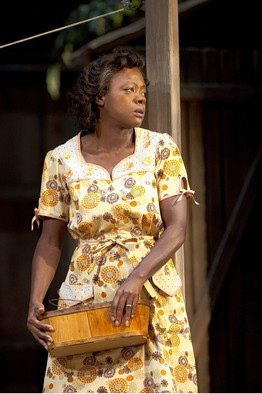 I arrived in Smalltown, U.S.A., yesterday afternoon, and am now contentedly ensconced in the bosom of my family. My brother turned fifty last week, and though I had to miss his surprise party–I was stuck in New York seeing shows–I mean to celebrate the great day belatedly during my brief trip home.
I arrived in Smalltown, U.S.A., yesterday afternoon, and am now contentedly ensconced in the bosom of my family. My brother turned fifty last week, and though I had to miss his surprise party–I was stuck in New York seeing shows–I mean to celebrate the great day belatedly during my brief trip home.
On Thursday I’ll be driving up to Kansas City to talk about Pops at the downtown library. The festivities begin with a reception at six p.m., followed a half-hour later by my lecture. Go here for more information if you’re in the vicinity and want to come hear me.
On Friday I’ll be flying to Chicago for a week of theatergoing, accompanied by Mrs. T and Our Girl.
I’m going to try to blog as often as possible during the first leg of my summer travels, but I’ll have to file my usual Wall Street Journal columns from the road, so things may be a bit sparse here from time to time. If that happens, don’t worry–I’ll be back sooner or later, probably the former.
Archives for 2010
TT: She’s so enlightened
I review the Broadway transfer of Sherie Rene Scott’s Everyday Rapture in the New York section of today’s Wall Street Journal–and, unlike my colleagues, I wasn’t impressed. Here’s an excerpt.
* * *
The attractions of “Everyday Rapture” can be summed up in nine words: Ms. Scott is beautiful, sexy and a terrific singer. I loved her in “Dirty Rotten Scoundrels,” and had I seen this show in a cabaret–minus the talk–I might have enjoyed it. Had I paid $116.50 to see it in a Broadway theater, on the other hand, I’d have gone home fuming, not because Ms. Scott sings less well or looks less fetching in front of an audience of 740 but because she has nothing to say that’s worth hearing and spends 90 minutes saying it. On the other hand, what Ms. Scott and Dick Scanlan (who co-wrote the book) tell us about her life and thought will be of considerable interest to those wishing to study the point of view of a fortysomething New Yorker who grew up in Kansas, was raised as a member of a fundamentalist religious sect, shook the prairie dirt from her feet as fast as she could and now looks back on her childhood and youth with a contempt that she fails to disguise as amused tolerance.
I may possibly be doing Ms. Scott a disservice, since the “Sherie Rene Scott” whom she plays in “Everyday Rapture” is a metafictional character who tells stories about her “past” that she and Mr. Scanlan may or may not have made up. “Only some are factual,” she says. “But all are true.” On the other hand, Ms. Scott’s coyness about the facts of her real life does nothing to conceal her feelings about the culture that she describes in “Everyday Rapture.” It was, to hear her tell it, a sewer of art-hating homophobes whose failure to share Ms. Scott’s appreciation for the genius of Judy Garland (“Torn between two lovers–Jesus and Judy”) was almost as odious as their belief that all homosexuals are headed for the hottest corner of hell. Somehow I doubt that absolutely everybody in Kansas feels that way, but Ms. Scott doesn’t seem to have met anyone there (except for her gay cousin) who begged to differ.
The trouble with “Everyday Rapture” is not its implicit belief system–I’m as much of a humanist as the next theater-loving Upper West Side aesthete–but the preening condescension with which Ms. Scott and her collaborator portray her own steady ascent to the heights of greeting-card enlightenment…
* * *
Read the whole thing here.
TT: Almanac
“The C student starts a restaurant. The A student writes restaurant reviews.”
P.J. O’Rourke, “A Plague of ‘A Students” (The Weekly Standard, May 3, 2010)
TT: And the winners are…
I had to go straight from a meeting of the New York Drama Critics’ Circle to an off-Broadway show, so I didn’t have a chance to post the winners of our annual awards, on which we voted this afternoon. To find out who won what, go here.
TT: Sorry about that, folks
Some anonymous scoundrel for whom hell isn’t nearly hot enough hacked ArtsJournal on Monday night, thereby bringing down the whole site and all of its associated blogs, this one included. Our Girl, CAAF, and I haven’t able to post anything since Tuesday morning, and though the malicious malware that shut us down is long gone, the lights didn’t go back on for many readers until just a few minutes ago.
Doug McLennan, who runs ArtsJournal, explains what happened–and why Google has wrongly kept you from reading this blog for the past couple of days–in this posting.
As of this hour, all of our accumulated postings are now published and we’re back in business again. Profuse apologies if you’ve been trying in vain to pay us a visit. Believe me, we’re glad to be back!
TT: Cheers for Viola Davis (and August Wilson)
In today’s Wall Street Journal drama column, I cover the opening of the Broadway revival of August Wilson’s Fences, a great American play in which Viola Davis is giving the performance of a lifetime. I also have a few things to say about Enron. Here’s an excerpt.
* * *
 Denzel Washington is by far the biggest name associated with the first Broadway revival of August Wilson’s “Fences,” but my guess is that it’s Viola Davis whose performance is going to stick with you. Not that Mr Washington is anything less than solid, but Ms. Davis is something else again. I knew she was a remarkable artist–anyone who saw her in the Off-Broadway premiere of Lynn Nottage’s “Intimate Apparel” or the film version of John Patrick Shanley’s “Doubt” knows that–but what she’s doing this time around goes straight into my scrapbook of stage performances from which you learn how brutally true to life great acting can be….
Denzel Washington is by far the biggest name associated with the first Broadway revival of August Wilson’s “Fences,” but my guess is that it’s Viola Davis whose performance is going to stick with you. Not that Mr Washington is anything less than solid, but Ms. Davis is something else again. I knew she was a remarkable artist–anyone who saw her in the Off-Broadway premiere of Lynn Nottage’s “Intimate Apparel” or the film version of John Patrick Shanley’s “Doubt” knows that–but what she’s doing this time around goes straight into my scrapbook of stage performances from which you learn how brutally true to life great acting can be….
It was Wilson’s special achievement to forge the everyday speech of working-class blacks into a language poetic enough to encompass tragedy. Time and again in “Fences” the actors utter sentences so pointed that they make you want to laugh out loud with delight: “I told him if he wasn’t the marrying kind, then move out the way so the marrying kind could find me.” “The only thing I knew was the time had come for me to leave my daddy’s house. And right there the world suddenly got big.”
Ms. Davis speaks her share of these sentences with relish, but she also makes us see their meaning. When Mr. Washington confesses that he has betrayed her, she appears to shrink before your eyes. “You telling your wife this?” she cries. “I have to wait 18 years to hear something like this?” Then her arms flail at random, as if she were a puppet whose strings had been clipped by despair….
Can good topical theater be spun out of nine-year-old news? Maybe, but you won’t prove it by Lucy Prebble’s “Enron,” a ripped-from-the-headlines black comedy about the rise and fall of the corporation whose 2001 collapse sent shivers through the world of finance that are felt to this day. Rupert Goold’s ultra-flashy production abounds with high-tech stage trickery, none of which manages to conceal the thinness and triviality of Ms. Prebble’s surprisingly unamusing script….
* * *
Read the whole thing here.
TT: A kind of poet
In Saturday’s “Sightings” column for The Wall Street Journal, I pay tribute to Gene Lees, the song lyricist and music journalist whose passing I noted last week. Gene, whom I had the honor to know for the last twenty-odd years of his life, was a greatly gifted writer and a lovable–if difficult–man, and I did my best to convey something of his complex essence in this piece.
If you’re curious, pick up a copy of tomorrow’s Journal and see what I have to say.
UPDATE: Read the whole thing here.
TT: Almanac
“Passion persuades me one way, reason another. I see the better and approve it, but I follow the worse.”
Ovid, Metamorphoses
